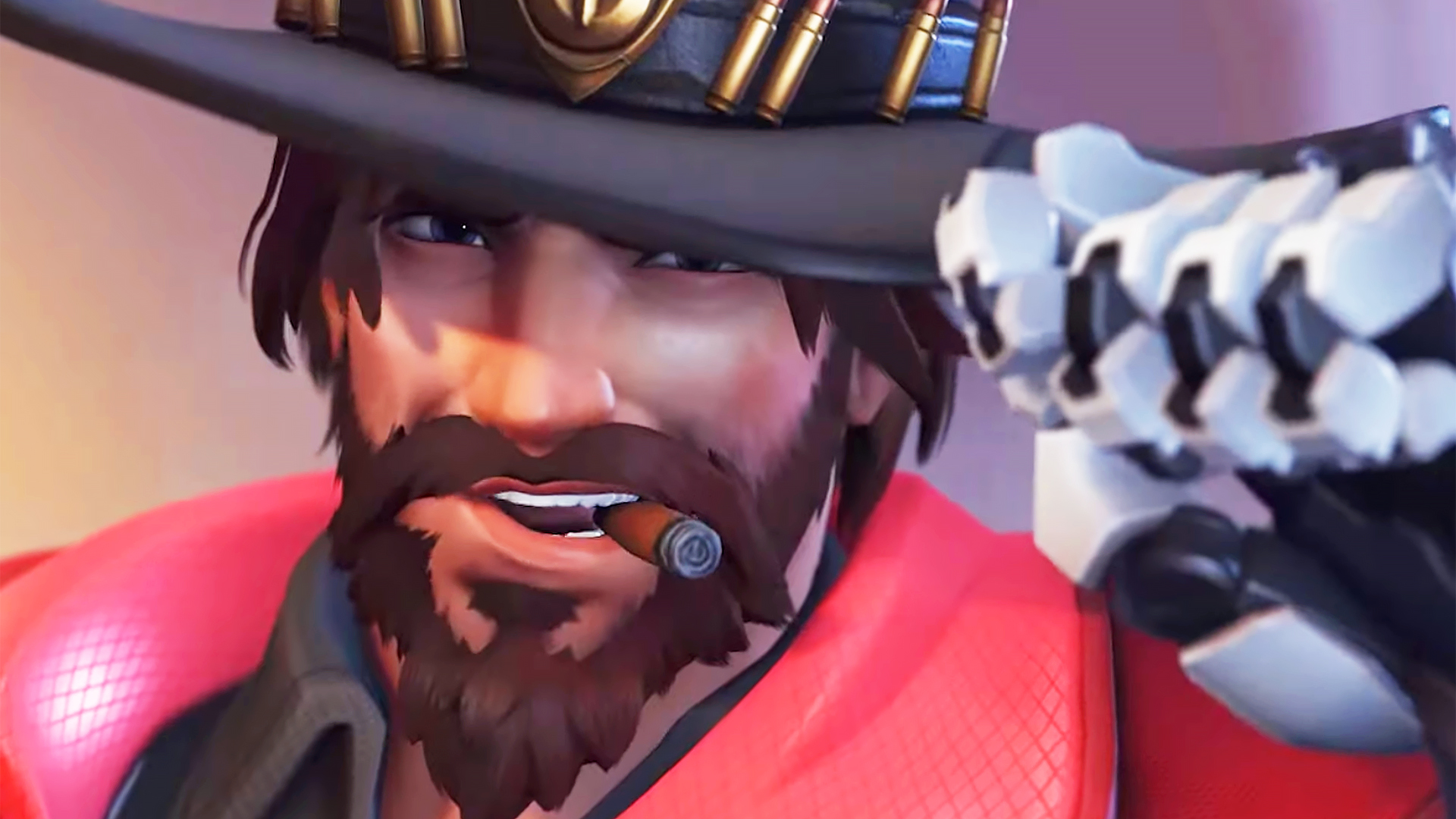Blizzard says Overwatch matches sometimes turn into 'stomps' because that's, like, just the nature of things
"We think there are mechanics in Overwatch that contribute to matches turning out this way".

Make no mistake about it, Blizzard is in triage mode on Overwatch 2. The seasonal announcements come-and-go with smooth regularity but beneath the surface this is a game paddling madly away from its original concept, much of which has now been cancelled, towards an uncertain future of mini events and trying to reinvent itself on-the-fly.
Season 6 will be the first big test of the new model and is even grand enough to bring its own subtitle. Overwatch 2: Invasion brings story missions, a new hero, a new mode, and so on, but specific content aside what will matter is whether Blizzard can make this feel like an event or Just Another Season.
Fan unrest about the battle pass model has been an ever-present since launch and Blizzard continues to tinker (in Season 5, for example, unlocking the pass tiers tells a story, and the rewards include more of the season's themed cosmetics). And while Season 5 brings four new modes, Blizzard's focus is on the new 5vs5 Ranked mini-season mode:
"Internally, we're watching your reaction to this mode closely," reads a new blogpost from Overwatch 2 director Aaron Keller. "This is a different type of competition and rating than our standard ranked mode. If this proves popular, it could open the door for other types of competition in our game that are based on teams (like an internal tournament system or mode), or could potentially force us to take a harder look at the way we treat grouping restrictions in our current system".
Keller then goes on to address a perennial topic for any competitive shooter: matches that feel completely one-sided, what players blame for them, and what developers think is actually happening.
"So…. stomps," writes Keller. "Stomps can happen in all games, and they happen in Overwatch. When a stomp happens, it's easy to blame the matchmaker: the match felt unfair, so it must be because the other team was much better or worse than your own. That might not always be the case, though. We’ve been collecting data and lopsided matches tend to happen at the same rate, regardless of match quality. Even in matches where the skill difference between players is less than one division".
Keller asks the reader if they've ever played a match in Control, gotten smashed in the first round, only to turn it around in the second and go on to win: And as a reader, I can say I've had exactly that experience in Overwatch matches many, many times.
Keep up to date with the most important stories and the best deals, as picked by the PC Gamer team.
The director acknowledges it's easy to think during that first round that something's gone wrong with the matchmaking, why is this happening to me, oh the humanity.
"The point of this example is that we think there are mechanics in Overwatch that contribute to matches turning out this way," writes Keller. "For instance, the way ult charge is generated in the game is a snowball mechanic, and it can be very hard to stop that momentum. When a team wins a fight, they typically generate more ult, but they also get to dictate positioning for the next fight, they get to stick together without the same chance of getting staggered as the loser".
All of which is to say that, in Control at least, the reset between each round puts both teams back on a level playing field. But in the cut-and-thrust of the rounds themselves, Overwatch's nature as an environment-controlling team shooter means that early advantages can be easy to build on and hard to surmount.
"We are continually working on our matchmaker, but the biggest gains for perceived competitiveness in Overwatch lies in looking at our core mechanics and game modes and making adjustments here," ends Keller. "More to come on this topic".
I don't know if the moaning about matchmaking has been particularly loud recently, but Keller's point seems fairly sound. The momentum he's describing can be felt acutely during Overwatch rounds, where losing too many frags early can quickly escalate into your entire team scattered and disorganised while the enemy flounces around popping off ults at will. This feels like how the game is supposed to work. But as Keller's sign-off suggests, Blizzard may be having a think about just how well it's working.

Rich is a games journalist with 15 years' experience, beginning his career on Edge magazine before working for a wide range of outlets, including Ars Technica, Eurogamer, GamesRadar+, Gamespot, the Guardian, IGN, the New Statesman, Polygon, and Vice. He was the editor of Kotaku UK, the UK arm of Kotaku, for three years before joining PC Gamer. He is the author of a Brief History of Video Games, a full history of the medium, which the Midwest Book Review described as "[a] must-read for serious minded game historians and curious video game connoisseurs alike."

